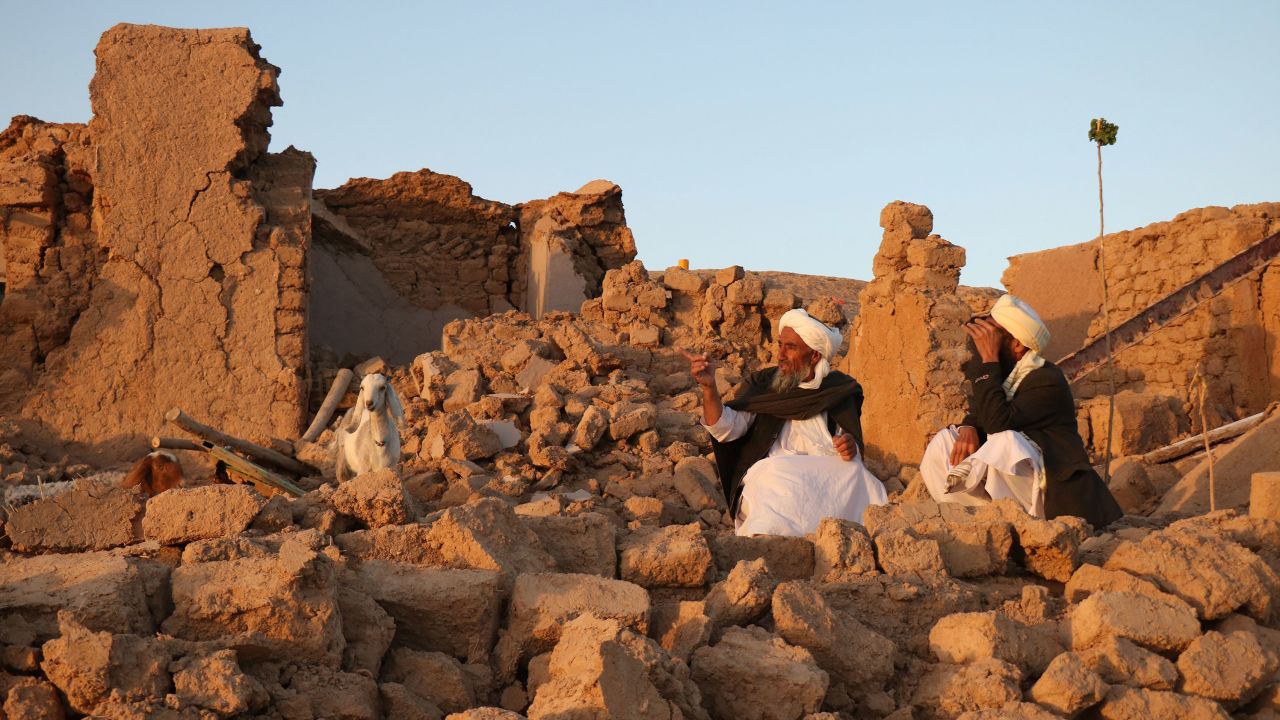More Than 2,000 People Dead As Powerful Earthquake Strikes Western Afghanistan
A devastating earthquake has shaken the region of western Afghanistan, leaving a trail of destruction and claiming many lives. More than 2,000 people dead as powerful earthquake strikes western Afghanistan. The earthquake, with its epicenter near the city of Herat, has caused widespread devastation, prompting emergency responses and humanitarian efforts.
Author:Morgan MaverickReviewer:Raven NoirOct 09, 20233.2K Shares129K Views

A devastating earthquake has shaken the region of western Afghanistan, leaving a trail of destruction and claiming many lives. More than 2,000 people dead as powerful earthquake strikes western Afghanistan. The earthquake, with its epicenter near the city of Herat, has caused widespread devastation, prompting emergency responses and humanitarian efforts.
More than 2,000 people dead as powerful earthquakestrikes western Afghanistan. The 6.3 magnitude earthquake, which occurred 25 miles (40 kilometers) west of Herat city in western Herat province on Saturday (October 7), was the third largest in Afghanistan.
According to Taliban spokesman Zabihullah Mojahid, 2,053 people were killed, 1,240 were injured, and 1,320 homes were fully or partially damaged. There are concerns that the death toll will increase further. The original tremor was noticed in nearby provinces Badghis and Farah, and it was followed by a series of aftershocks.
In the wake of the earthquake, search and rescue operations are underway to locate survivors buried under the rubble. Emergency services, aided by local authorities and international assistance, are working tirelessly to reach affected areas, offering medical aid, and providing support to those affected.
The earthquake has triggered a humanitarian crisis, with many residents left without shelter, food, or basic necessities. Thousands are now displaced, seeking refuge in makeshift camps or temporary shelters. The international community is mobilizing resources to address the immediate needs of those affected and to mitigate the ongoing humanitarian challenges.
The Taliban, who now control Afghanistan, have responded to the crisis by coordinating relief efforts and facilitating the entry of aid organizations into the affected regions. The earthquake adds to the challenges faced by the Taliban-led government as it grapples with the aftermath of the recent political changes.
The globalcommunity has rallied to provide assistance to Afghanistan in the wake of this natural disaster. Various countries, non-governmental organizations, and international bodies are contributing resources, funds, and personnel to aid in the relief efforts and support the affected population.
At least a dozen rescue teams have been dispatched, including military and non-profit organizations such as the Red Crescent.
The United Nations migration agency has sent four ambulances to the regional hospital, each with a doctor and a psychosocial support counsellor. At least three mobile health teams are on their way to the Zenda Jan district, which has been severely damaged. The World Health Organization's Afghanistan section said it sent 12 ambulances to Zendeh Jan to transport injured individuals to hospitals.
Doctors Without Bordersestablished five medical tents at Herat Regional Hospital to house up to 80 patients. According to the agency, authorities have treated almost 300 individuals.
According to Irfanullah Sharafzai, a spokeswoman for the Afghan Red Crescent Society, seven teams are working on rescue attempts, with additional teams arriving from eight adjacent provinces.
“„A temporary camp has been set up for people who have lost their houses and need shelter for now. Whatever is in our capacity we will do for our poor and needy people at this difficult time.- Irfanullah Sharafzai
Conclusion
More than 2,000 people dead as powerful earthquake strikes western Afghanistan. The earthquake in western Afghanistan stands as a tragic event that has not only claimed lives but also triggered a complex humanitarian crisis.
As rescue operations continue and international assistance pours in, the focus shifts to rebuilding lives and communities. The resilience of the Afghan people, coupled with global support, will play a crucial role in overcoming the aftermath of this natural disaster and rebuilding a sense of normalcy in the affected regions.
Jump to

Morgan Maverick
Author
Morgan Maverick is an unorthodox news reporter driven by an insatiable hunger for the truth. Fearless and unconventional, he uncovers hidden narratives that lie beneath the surface, transforming each news piece into a masterpiece of gritty authenticity. With a dedication that goes beyond the boundaries of conventional journalism, Morgan fearlessly explores the fringes of society, giving voice to the marginalized and shedding light on the darkest corners.
His raw and unfiltered reporting style challenges established norms, capturing the essence of humanity in its rawest form. Morgan Maverick stands as a beacon of truth, fearlessly pushing boundaries and inspiring others to question, dig deeper, and recognize the transformative power of journalism.

Raven Noir
Reviewer
Raven Noir is a captivating and enigmatic news reporter who unravels mysteries with a relentless pursuit of truth. Possessing an insatiable curiosity and an astute mind, Raven delves into the depths of complex stories, unearthing secrets that lie beneath the surface. With a masterful grasp of deduction and observation, Raven stands as a beacon of fearless investigation.
In the realm of journalism, Raven is known for his enigmatic presence, drawing people in with an aura of intrigue. Driven by an unwavering passion for unveiling the truth, Raven Noir continues to shed light on the darkest corners of society. Through captivating storytelling and unwavering determination, he challenges conventions and uncovers enigmatic secrets that lie just beyond the surface.
Latest Articles
Popular Articles